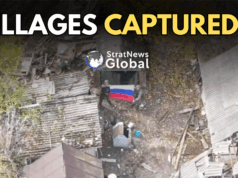India has more or less walked out of the 65-year old Indus Waters Treaty following the horrific terrorist attack in Pahalgam last week. So far it has kept the implementation of the treaty in abeyance ‘with immediate effect, until Pakistan credibly and irrevocably abjures its support for cross-border terrorism,’ the Ministry of External Affairs said in an official statement.
In effect the treaty is as good as dead, says India’s former High Commissioner to Pakistan, seasoned diplomat and strategic thinker, Ambassador Satish Chandra.
In this chat with Editor-in-Chief Nitin A. Gokhale, Ambassador Chandra explains why. He points out India has 40 per cent roughly of the catchment area of the Indus basin. But under the treaty, India is providing Pakistan as much as 80 per cent of the water, keeping only 20 per cent for us.
The second thing he thinks everyone needs to understand is that West Punjab (now in Pakistan) at the time of partition was heavily irrigated and had about 140 canals whereas East Punjab now in India) barely had 12 canals.
Another figure: As against about 21 million acres of land irrigated, India only had 5 million. So really for this treaty to have been fair India should have demanded that much more of the irrigation that was being created. But that did not happen.
Add to this the fact that India paid Pakistan as much as $175 million in 1961 over a ten year installment period.They got as much as $900 million in the Indus Basin Fund, which was provided by the international institutions by donor countries. The USA paid around $450 million. So we were the second largest. With that money, Pakistan built two big dams and several canals. With India’s money!
Amb Chandra is therefore pleased that India has finally decided to bite the bullet and hit Pakistan where it hurts them in the medium and long term if not immediately. Listen in for an insight into a slice of history that is largely hidden from common citizens.




